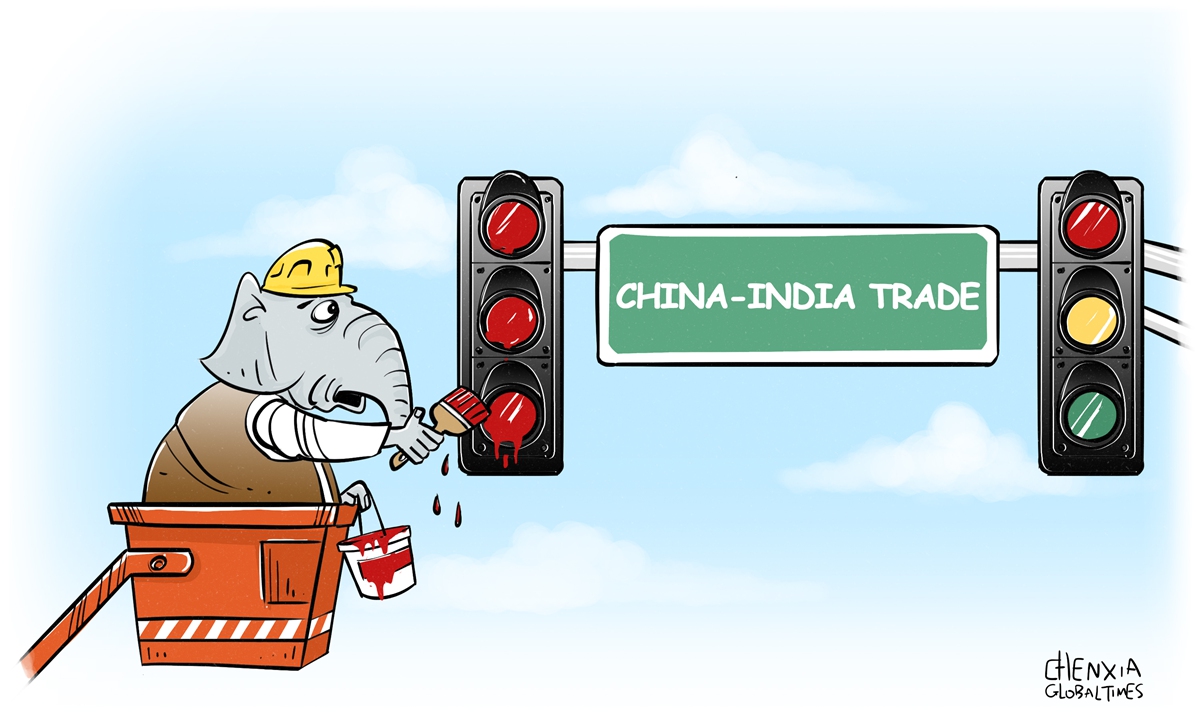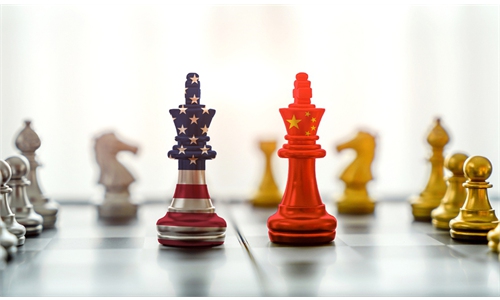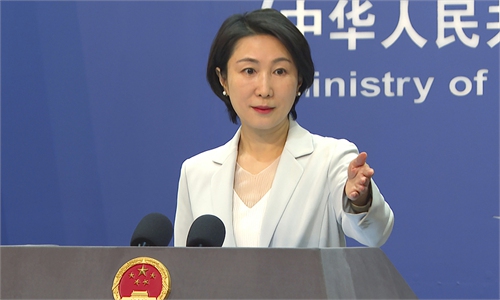
Illustration: Chen Xia/Global Times
While some Indians have been focusing on nationalism, protectionism and using border disputes as an excuse to suppress Chinese enterprises, less attention has been paid to the stories of Indian businesspeople who have been dragged into the vortex of geopolitics.The Chinese version of VOA published an article on Monday interviewing Indian businessmen like Nafisul Jilani, who has been working in the tourism and exhibition industry for 12 years, mainly serving clients from China. These stories of ordinary people reflect the Indian business community's anxiety and unease about the deterioration of economic relations between China and India. This development deserves the serious attention of Indian officials, as it reminds all of the necessity to reduce the drag on bilateral cooperation, which benefits both countries.
China-India economic relations are in limbo. Jilani said in the interview with VOA that businessmen on both sides are eagerly waiting for the situation to improve, but unfortunately, hope is diminishing.
The Indian side should be held accountable for this. In the latest example, it was reported by India media outlets that the Indian authorities arrested three employees working for Chinese smartphone maker Vivo's India unit, in the name of the so-called combating financial crimes. It is widely interpreted as a sign that India may intensify its crackdown on Chinese companies, and thus further undermine the confidence of Chinese companies in the Indian market.
Anti-China sentiment has been on the rise in India since a border clash took place in 2020. In the ensuing period, the Indian government has intensified its crackdown on Chinese companies operating in India, most prominently in the smartphone sector. Some anti-China forces even urge the boycotts of Chinese-made products and the reviews of Chinese investment.
What's more bizarre is that such behavior, which has far exceeded international rules, has now become a deliberately overlooked and even tolerated behavior amid the so-called China-India manufacturing competition, in which some Indians may hope to amplify anti-China rhetoric and use geopolitical issues as leverage to give Indian companies an unfair advantage by suppressing their Chinese competitors.
However, things are going in the opposite direction of what those people had expected. The VOA report adds to evidence that ordinary Indian people are becoming victims of India's anti-China sentiment.
Why does this happen? There are several reasons.
First, China's investment and trade have created a lot of jobs in India. Take a simple example. The Mumbai-based Economic Times reported in July that Xiaomi will focus on boosting its India sales from retail outlets after years of big bets on e-commerce. This means Xiaomi will hire more in-store promoters - salespeople who lure customers, and pitch and sell phones - inside outlets. Behind every sales position, there will be a vivid story, just like Jilani's.
Second, China is moving up the value chain. China's exports of machinery equipment, intermediate products and core components have increased. Some of those goods are exported to India, becoming part of the products assembled in India. China's funds, technology and even skilled workers have contributed to the upgrading of India's manufacturing industry. If India chooses to "decouple" from China, the Indian economy will bear unnecessary losses.
Third, although there is economic competition between China and India, the complementarity of the two economies is greater than its competitiveness. A few may benefit from India's crackdown on Chinese companies, but a broader Indian group will become victims of the geopolitical games. This will create stories of declining incomes and even unemployment in India.
It is hoped such vivid stories can draw attention from Indian politicians and awaken their rationality, urging them to offer a fair business environment for international enterprises, including Chinese ones.
The author is a reporter with the Global Times. bizopinion@globaltimes.com.cn



